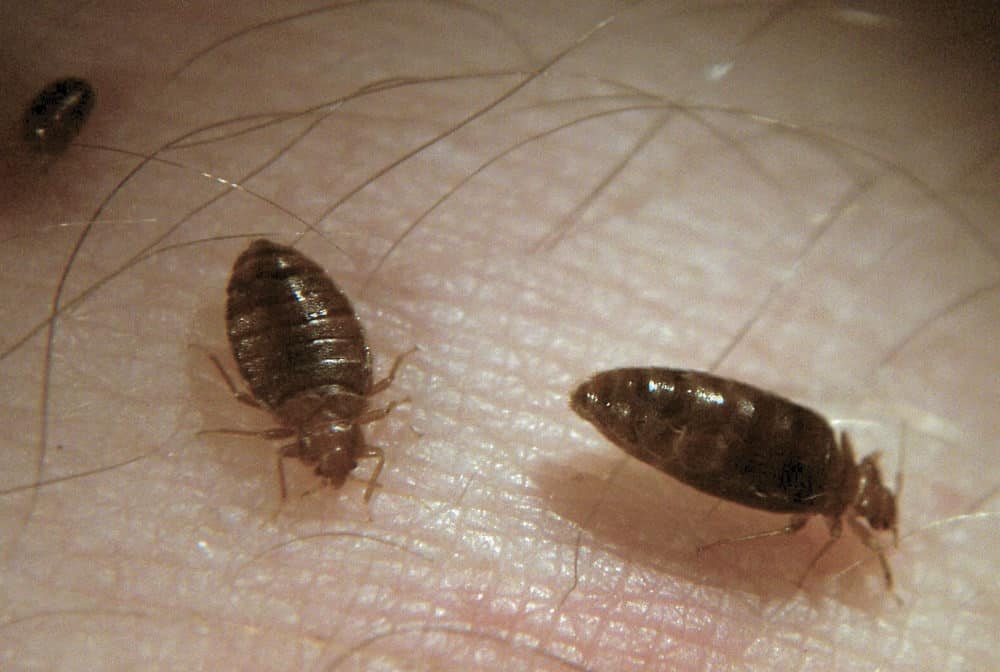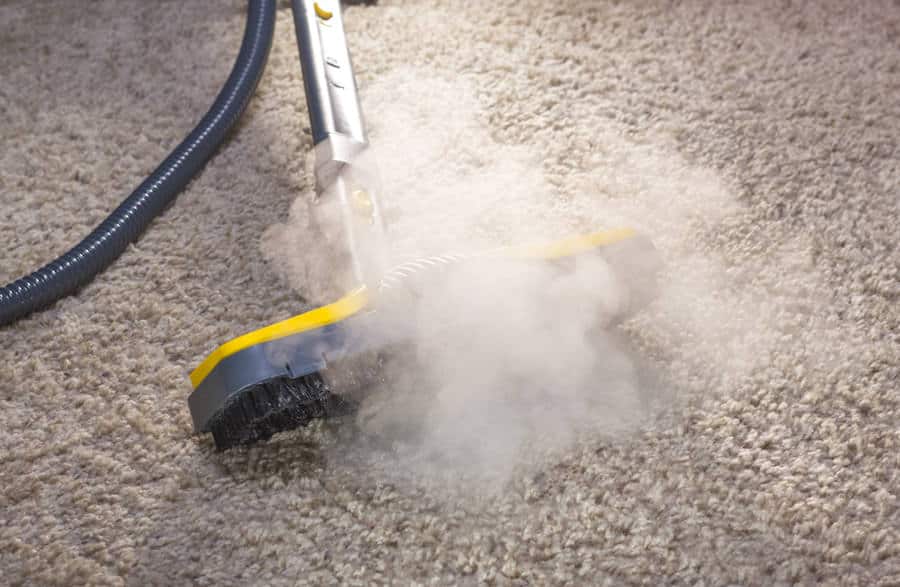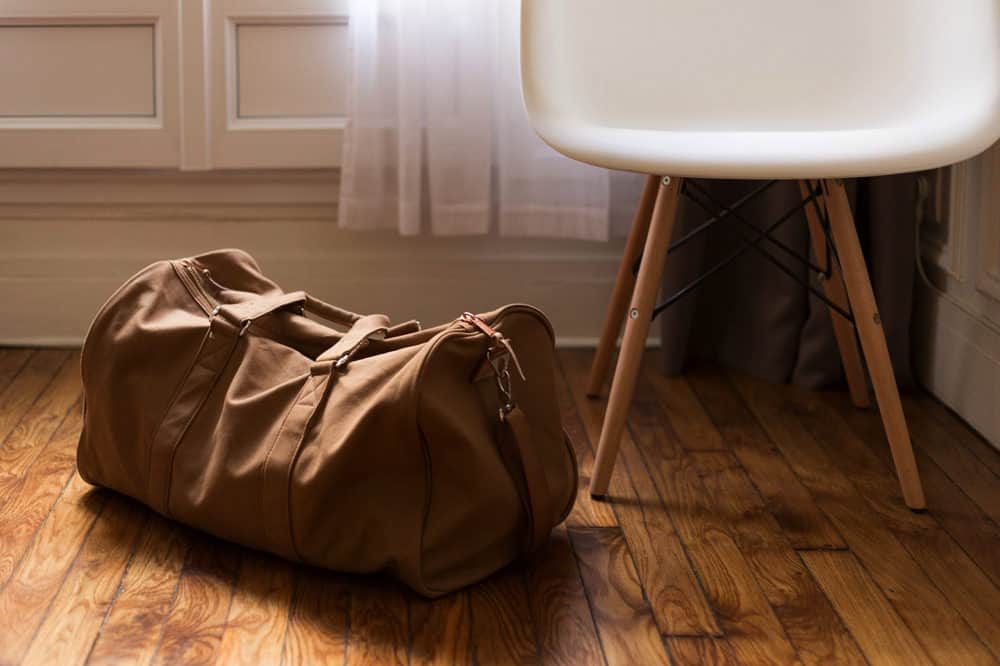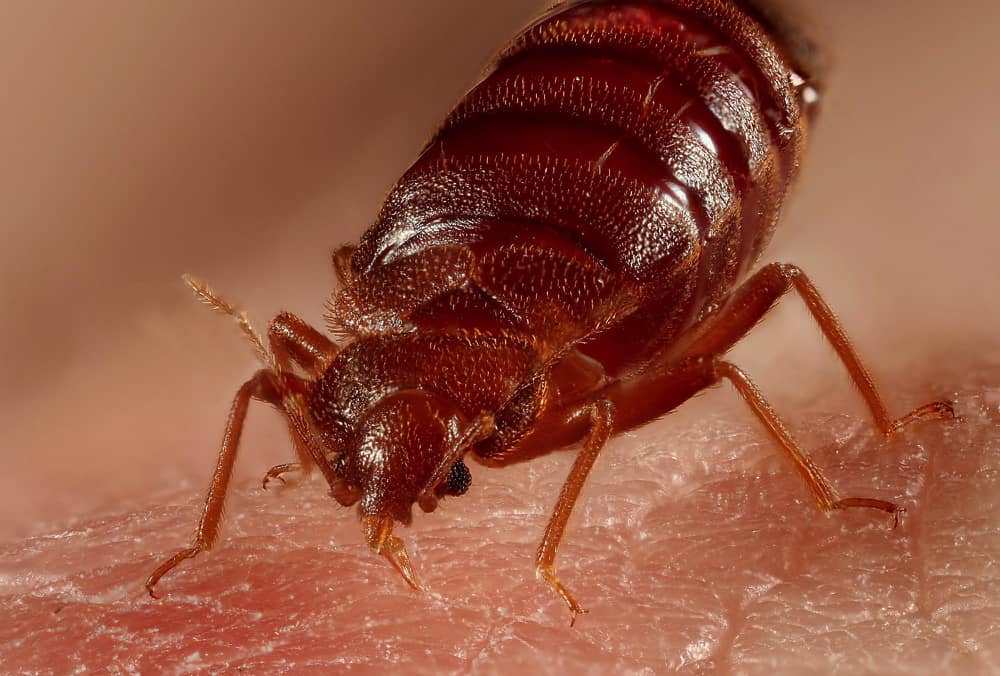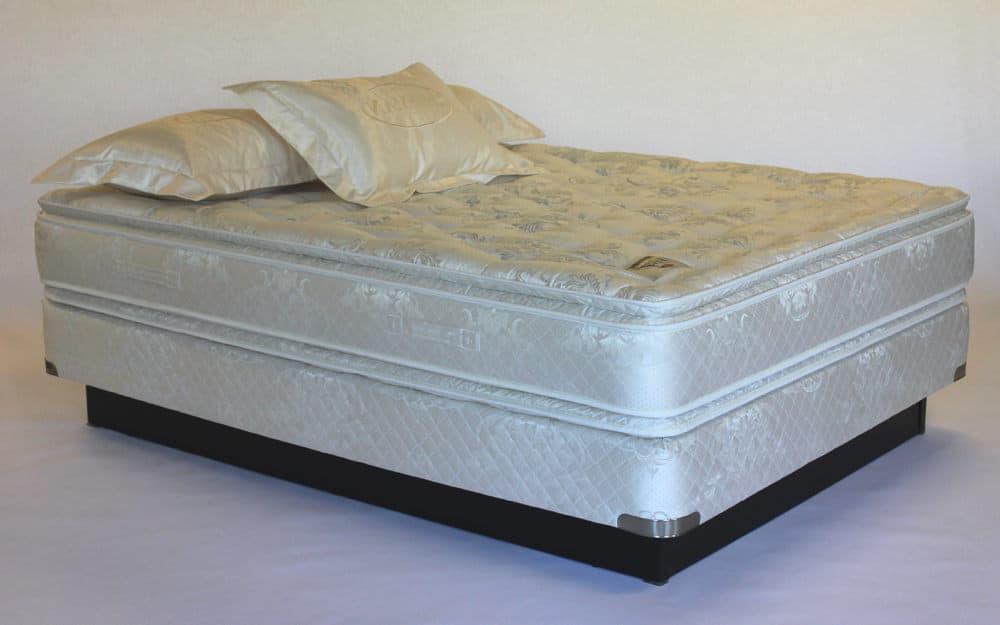Does Bleach Kill Bed Bugs?
Bed bugs are annoying, cause skin problems when they bite, and can disturb your sleep, making life much more difficult. On top of that, they have a well-earned reputation for being among the hardest bugs to get rid of. Can bleach kill bed bugs once and for all? Read are in-depth article below to find out.
Will Bleach Kill Bed Bugs?
Many people have wondered if bleach and other similar products such a Lysol could actually be put to use in order to disrupt unwanted bed bug infestations, as it is easy to source and very cheap compared to other bed bug treatment costs.
Although this would seem to make sense, it’s not always easy to find scientific backing for the claim. Still, you don’t have to look very long to find legions of people who will claim it has worked for them, although many others say that bleach made no difference.
Bed bugs can be quite resilient. Although bed bugs were not a problem years ago as the widespread use of many chemicals kept them at bay, many of those chemicals (such as DDT) have since been banned as they are not good for the environment. This has allowed bed bugs to make a resurgence.
Another issue that has made bed bugs more difficult to deal with is that they seem to have developed a certain amount of immunity against many legal pesticides. Bed bugs have a well-earned reputation for being among the most difficult insects to get rid of, which only makes it harder to believe that bleach can make a real difference in killing them off.
Many researchers and doctors have expressed doubt that bleach can make a difference against bed bugs. However, others say that like any other chemicals that kill insects, bleach exterminates bed bugs when they come into contact with it. The prevailing thought is that bleach is effective at killing bed bugs. However, as we will discuss, there are certain limitations as to how bleach can be effectively used.
Can Bleach Kill Bed Bug Eggs?
When trying to get rid of a bed bug infestation (or any other insect infestation), you can’t afford to concentrate on the living bugs and forget about the eggs. After all, one of the reasons that it is so difficult to get rid of insect infestations is that they reproduce so quickly.
Again, there is some contention on this, but the prevailing thought is that unlike with adult bed bugs, bleach is not very efficient at killing bed bug eggs. Although the chlorine or other ingredients in bleach will kill bed bugs that come into contact of it, eggs provide an insulation of sorts against such chemicals.
However, if the bleach is still on the surface when the eggs hatch, the resulting bed bugs will be killed. Still, this is a timing issue as it takes about two weeks for bed bug eggs to hatch. Theoretically, you could rid your home of adult bed bugs only to find a fresh batch in your home two weeks later when the eggs have hatched.
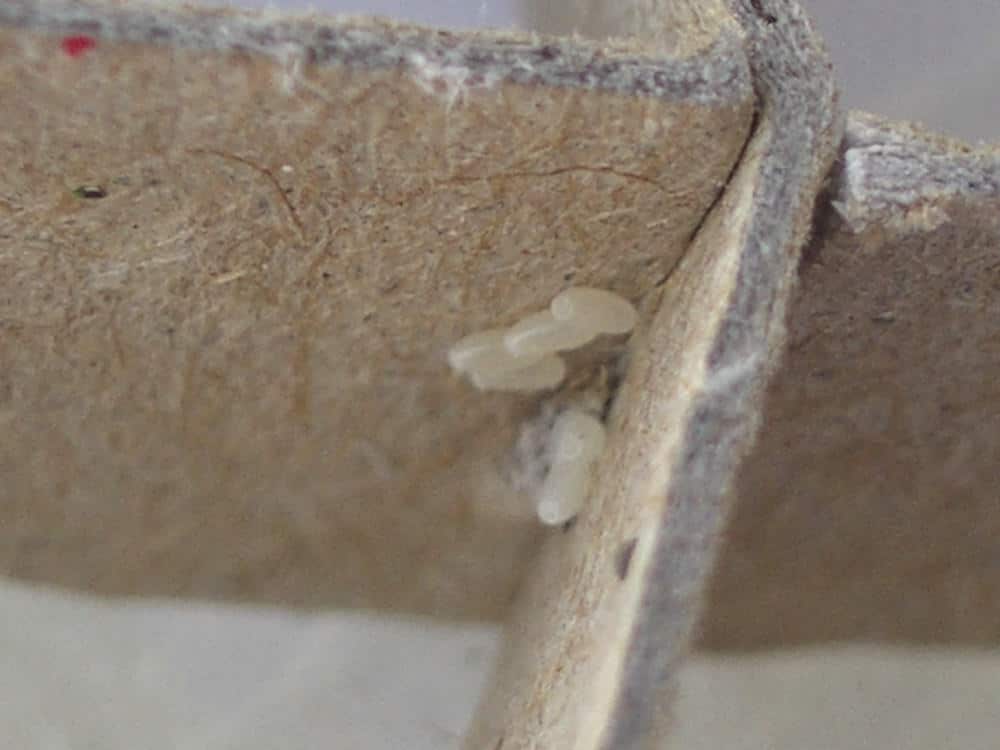
So what do you do about the eggs? The best way to deal with them is to use heat or extreme cold, each of which will kill the eggs. Therefore, fabric surfaces can be washed in hot water to kill any eggs, as long as the item is able to be washed. Extreme cold also works, though it isn’t always practical to put items in the freezer for a couple of days.
Will All Types Of Bleach Work?
You may recall that in the beginning of the article, we discussed the many different
varieties and kinds of bleach. The reason why those varieties are relevant is that it’s important to understand that not all bleach is the same. Products called “bleach” may actually have varying active ingredients. Furthermore, there’s liquid bleach and bleaching powder, as well.
In general, a type of bleach such as Clorox is the best way to go, as the active ingredient of sodium hypochlorite is quite powerful as a cleaning and sanitary agent and is definitely harmful to insects and pests like bed bugs.
You may also find that a bleaching powder may be a good choice instead of liquid bleach. This can be easily applied and left in small amounts on surfaces that you are sure have been home to bed bugs.
How To Use Bleach Against Bed Bugs
First of all, you probably want to confine your use of bleach to certain areas of your
home. The reason for this is that while bleach will do its job against bed bugs, it is also a definite skin irritant. We will discuss this more in the next section, but for now, keep in mind that bleach is not the best option for getting bed bugs out of mattresses.
However, bed bugs do not limit themselves to just hiding inside of mattresses. You can’t simply throw out a mattress and assume that your bed bug problem is gone forever. If you do this, you are likely to find that the new mattress you buy becomes infested, as well.
This is where the bleach comes in. You have to be proactive in finding all of the little nooks and crannies in which bed bugs like to hide out. Remember, bed bugs only need to feed every week or so, and can go even longer than that without food in a controlled indoor climate. Therefore, they could be just about anywhere.
The first thing you do is remove all fabrics from the infested rooms. That means not only sheets and blankets, but all clothes. Soak them all in bleach or wash them in hot water with a detergent that includes bleach, if possible.
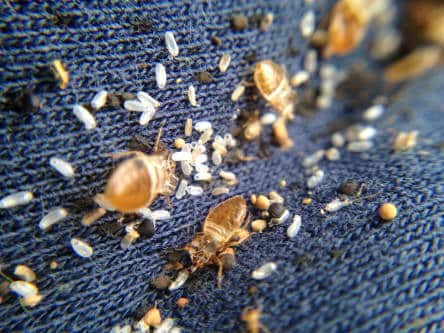
Now that your dresser drawers, night stand drawers, and other areas are empty of fabric and other items, mix a spray bottle solution of bleach and hot water. Use about a 1:1 mix of the items.
This is the important part. Spray in all of the potential hiding places where the bugs may be either living or laying eggs (or both). This means crevices, corners of shelves and drawers, holes or cracks in walls, and anywhere else that you can think of.
Remember that you will also be best off cleaning all of your floors too, since being thorough is of the utmost importance when trying to get rid of bed bugs for once and for all. Mop your floors with a bleach mixture made with the instructions that we used earlier.
The reason that you’re being so thorough is that bed bugs can survive if there is bleach near them and they don’t come in contact with it. Since bed bugs can go several days without eating, they can hunker down for a week if they need to if you don’t actually apply bleach to the areas that they’re living in.
Risks Of Using Bleach To Kill Bed Bugs
One of the major risks of using bleach to kill bed bugs includes damaging your products. Many mattresses can be damaged through the application of bleach, as they simply aren’t made to have those types of chemicals applied. Mattress covers are not like clothes, which are made to withstand stains, heavy duty washing, drying, etc.
Therefore, in nearly all cases, experts advise that when you have a mattress that becomes infected with bed bugs, you should simply discard it and throw it out. It’s just too difficult to get them out of their hiding places if you have a lot of them present. If this is not possible, you can always try some of the alternative treatment methods that are detailed later in the article.
Another risk that bleach presents is that of skin irritation. Bleach may be too harsh for bed bugs, but it is also very harsh for human skin. This is why you are generally advised to use gloves when using bleach, or told to wash your hands right after using it.
It doesn’t make a whole lot of sense to use bleach to get rid of bed bugs that are biting your skin, only to have the resulting bleach-saturated mattress irritate your skin some more! It’s best to confine your use of bleach to other areas where it won’t negatively impact your skin or health.
Also, you will have to be very diligent about your use of bleach if you have pets, children, or both in your home. Small children in particular must be monitored and kept away from the areas in which you have applied bleach. Bleach is certainly not healthy for people or pets to come in contact with, so be careful about using it when kids or pets are a consideration.
Finally, make sure that you have a well-ventilated area when cleaning with bleach. Open up the windows and use fans if possible to air out the area as you clean. A face mask may also be a good idea, especially if it’s winter and you can’t just open the windows all the way up. Ventilation is even more important if you have to do the cleaning with the door closed to keep pets and kids away for their own safety.
Bleach Alternatives For Killing Bed Bugs
Bleach is definitely not the only thing that you can use to kill bed bugs. There are also many other cheap and safe alternatives. Just be aware that there are some not-so-effective treatments out there too, such as boric acid, so be sure to conduct your research before implementing any untried methods.
Below are a few other alternative treatments that I’ve had great success in using against bed bugs in the bedrooms and other areas:
Diatomaceous Earth
Diatomaceous earth has long been considered one of the best ways to fight off bed bugs. It is a natural pesticide that unlike bleach, is safe to apply when kids or pets are around. However, diatomaceous earth is just one part of bed bug treatment and should be used only after you’ve already steam cleaned your home, washed all fabrics, and vacuumed thoroughly.
When looking for Diatomaceous Earth to use, don’t worry about buying anything too special or expensive, as most forms are more or less similar to each other. However, choosing a food-grade DE is probably your best choice as it can be less hazardous than other forms. A bag like this DiatomaceousEarth Food Grade 10lb should work absolutely fine.
Alcohol
It has been discovered that different types of alcohol can be used to kill bed bugs. In general, the most effective alcohol substances to use are 70% alcohol and 91% rubbing alcohol.
The major drawback to using alcohol is that it is highly flammable. Every now and then, you will read in the news that someone set their house on fire trying to use alcohol to get rid of bed bugs. This may make 70% alcohol the better alternative, as it is less flammable than 91% isopropyl alcohol, which is also much harsher on many surfaces.
Heat Treatment
Heat treatment is a proven, successful method of killing bed bugs. With heat treatment, just as you would assume, you apply high amounts of heat to the contaminated area to kill the bugs and eggs.
This can usually be done using a hot steam machine, or a specialised industrial heating unit which heats the entire room to a high enough temperature (118f for 90 minutes) to kill all bed bugs and their eggs.
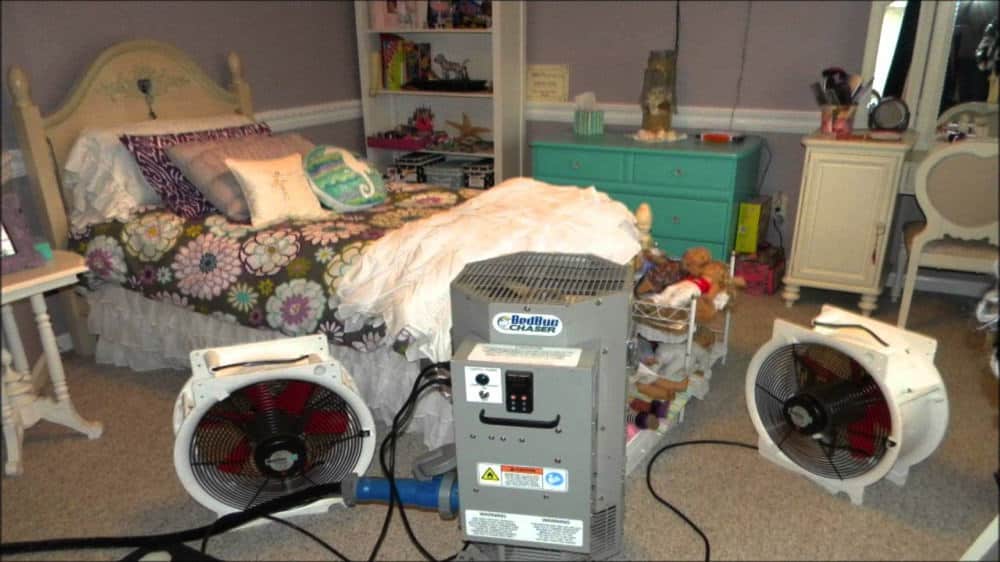
My favorite way to heat household items to a temperature that is sure to kill all bed bugs and eggs without needing to purchase expensive pest control heat treatment is to use a ZappBug Heater, which is specially designed to kill all stages in the bed bug life cycle.
Simply place infested items into the ZappBug heater and it will automatically reach the all-important bed bug killing temperature, so you can be sure the items come out all-clear.
Large and small versions are also available.
Summary
As you can see, bleach is a capable tool to use against bed bugs, although there are also a number of other alternatives available. It is important to take into account things such as cost, the level of infestation, where the bugs are located, and other factors when deciding the best way to address a bed bug problem.

